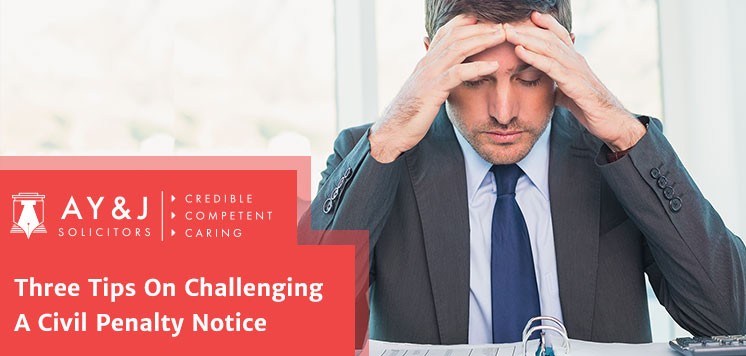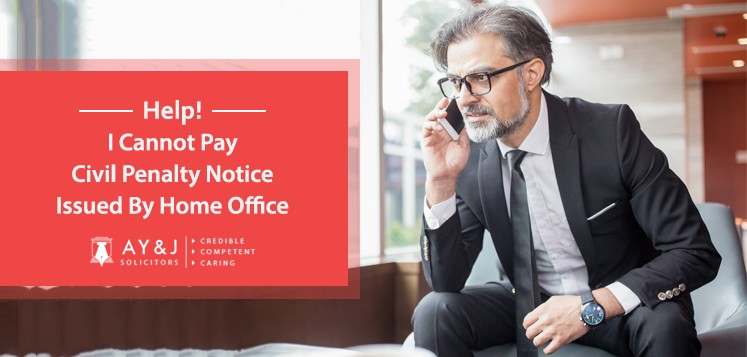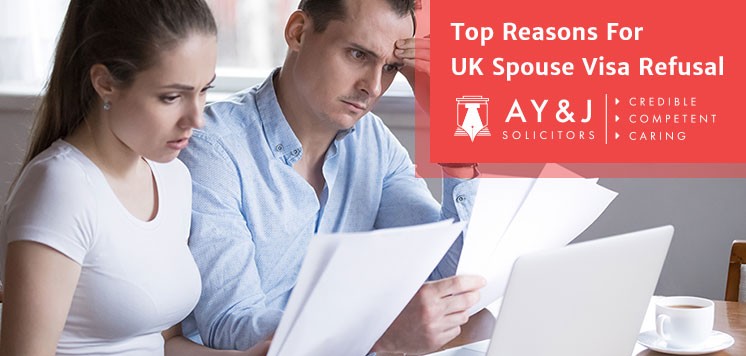Disclaimer: The information in this blog is accurate as of its publication date. Any updates after that date are not reflected here.
Receiving a Civil Penalty Notice can cause irreparable financial and reputational damage to an organisation. This is especially true if the matter becomes a target for media interest. Not only can a Civil Penalty result in a fine, but your businesses name may also be published by Immigration Enforcement, jeopardising your ability to attract and retain the talent essential to achieve growth. You may also risk losing your Sponsor Licence if you have one.
If you receive a Civil Penalty Notice, you must act fast to mitigate the possibility of legal consequences. Below are three top tips on challenging a notice so that you can protect your commercial interests and the rights of your migrant employees.
Table of Contents
One – Seek Legal Advice Immediately
You may think that this is an obvious thing for us to say – after all, we are immigration lawyers. However, a breach of section 15 of the Immigration, Asylum and Nationality Act 2006, which provides for a penalty if an employer is caught with illegal workers on their payroll, or even those not on the payroll is a serious offence. What’s more, in most cases, an employer has a defence. Unfortunately, without legal advice, many employers panic and simply accept the penalty and its consequences, not fully realising how harsh they can be.
By contacting an immigration lawyer, you can put the stress and strain of receiving a Civil Penalty Notice onto the shoulders of an expert. Your lawyer will examine the background to the notice and the reasons it was issued. They can quickly see if you have a ‘statutory excuse’ and challenge the Civil Penalty Notice on your behalf. In the meantime, you can get on with concentrating on your business.
Two – Understand What a ‘Statutory Excuse’ is
The majority of Civil Penalty Notices are defended on the grounds the employer had a ‘statutory excuse’. This means that the employer can prove they carried out a compliant Right to Work Check.
A compliant Right to Work check is a three-stage exercise:
- the employer must acquire the potential recruit’s documents which state they are legally allowed to work in the UK,
- the documents must then be checked for their validity, and this must be done in the presence of the employee, and
- a clear copy must be made of the documents and the date of the check recorded
If the Home Office sees evidence that a proper Right to Work check was carried out on the migrant/s for which the Civil Penalty Notice relates, the fine will be waived.
To prove you have a ‘statutory excuse’ your HR systems need to demonstrate you are fully compliant with Sponsor Licence duties and responsibilities. Make sure your records are always accurate, and the Sponsor Management System is always up-to-date. It is worth investing in an annual audit of your HR systems to check everything is in order. This will provide you with confidence that should the Home Office make an unannounced compliance visit, they will not find anything that may affect your Sponsor Licence or result in a Civil Penalty Notice being issued.
Three – Don’t Be Afraid of Issuing an Application to the Civil County Court
If your challenge to the Home Office regarding a Civil Penalty Notice is unsuccessful, the next step is to appeal to the Civil County Court. This frightens many employers and understandably so. Court cases are equated with high costs, stress, and lost productivity. Depending on the submission you have put forward against the allegation brought by the Home Office, along with the evidence, you have submitted you may wish to challenge the decision of the Home Office to drop the charges against your company by preparing an application to the Civil County Court.
Final words
If you receive a Civil Penalty Notice, it is imperative that you seek to challenge it. By investing in quality immigration law advice and representation, your chances of succeeding are greatly improved.
A Y & J Solicitors are specialist immigration lawyers based in central London. If you would like more information, please contact us at contact@ayjsolicitors.com or call +44 20 7404 7933.
Disclaimer: No material/information provided on this website should be construed as legal advice. Readers should seek an appropriate professional advice for their immigration matters.










